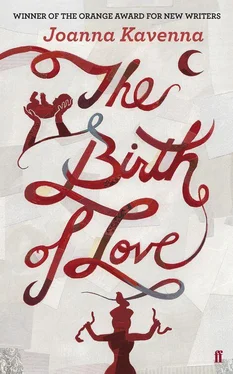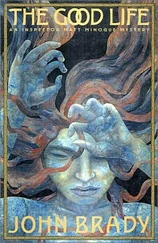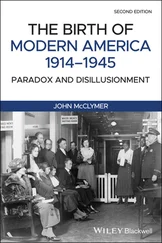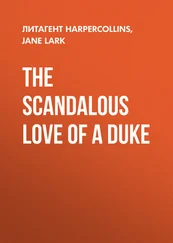‘Herr S was insane. This means anything he said cannot be considered,’ says Herr Meyer, abruptly.
‘You are wrong. He died because he was savagely beaten. I am convinced of it. His death was avoidable. If you had treated him as a suffering human and not as an animal, he would have lived …’
Robert von Lucius stops talking. He understands that it is pointless to say anything to this man, this torturer, who thrives on pain and despair. And he is aware of something else, a horrified recognition that this is what he feared. He might have averted it, he thinks, if he had acted sooner, if he had allowed himself to act on his fears. So his rage is mingled with self-reproach, and he clenches his fists.
‘He was a violent madman,’ Herr Meyer is saying. He is puffed up with indignation. Robert von Lucius wonders if the man truly believes, if he believes and does not doubt himself, that he has done nothing wrong. ‘We restrained him in the only way possible. Otherwise he would have been a danger to himself.’
‘You are a murderer,’ says Robert von Lucius. ‘You have killed this innocent man, and thousands of women will die because of your actions.’
‘You should leave now,’ says Herr Meyer. ‘Before I call the guards.’ And now he slams the door, and will not open it again, though Robert von Lucius breaks his knuckles hammering on it.
*
When he finally realises that this door will not open, Robert von Lucius turns away, head bent, stricken with a terrible dark guilt, that he saw the suffering of Semmelweis and did nothing. The man is dead, he thinks, and I planned to speak to him today, to understand him further. I planned to help him, but I have arrived too late, and my plans do not matter now. The man is dead and we shall never speak again.
He thinks — though he tries not to, but he cannot repel the thought — of Semmelweis dying alone in his cell, the fetid dungeon they cast him into, dying in darkness, deprived even of the light of the moon.
*
Robert von Lucius turns with his head bent, and walks back down the hill.
*
Heads bent, the prisoners are pushed into the room. Prisoners 730004, 730005, 730006, 730007 are pushed into the room, and they nod their recognition quickly, not wanting to incriminate each other.
*
Prisoner 730004 lifts her head and sees before her the servants of the Protectors, called Protection Scientists. Half a dozen men, hard and vital, the beneficiaries of intensive courses of gene therapy. They are the elite guardians of this civilisation; they act to protect the species — their actions justified by this aim. Their lofty phrases, all those phrases they threaded around her, as they are threaded about Darwin C, woven across a thousand walls — they believe them all, coldly, rigidly. To Prisoner 730004, they look alike, as she glances at their faces one by one — her glance rushed and nervous, because she knows they have come to condemn her. Perhaps she thinks they are alike because their faces phrase the same attitude of mind, this absolute conviction. Nothing will shatter this conviction, she thinks, as she scans them with her weary eyes. They do not look at her. The Head Scientist — taller and sterner still — appears among them, wearing a grey robe. He is old, but he has been repeatedly rejuvenated, his cells replaced; he is a hybrid, an ageing body filled with borrowed life. Now one of the Scientists says, ‘Line them up.’ And the guards obey them. Prisoner 730004 can barely stand, fear has softened her limbs, but a guard grabs her and she is lined up anyway.
*
Another Protection Scientist says, ‘We regret to inform you, Prisoners, that you have been found guilty of conspiring against the survival of the species, and therefore you will be processed and conveyed elsewhere.’
*
Involuntarily they gasp. Elsewhere means the mass-scale farms, or an Institution for the Improvement of the Reason. They will be dispersed; there are innumerable such places. Prisoner 730004 looks at Oscar, sees he has been numbered 730005, and she wants to fling her arms around him, weep with him — but her hands are tied. His eyes are on the floor; he looks too shocked and broken to raise his head.
*
‘You should be grateful for the compassion and clemency of the Protectors,’ a Protection Scientist is saying. ‘In other, less advanced civilisations your crimes would be punishable by death.’
‘There is something else,’ says another of the Protection Scientists. Very slowly, enunciating his words clearly, so there can be no mistake, he says, ‘Your co-conspirator, the egg donor you called Birgitta, has been found. The Protection Agents tried to protect her, but she died in the struggle.’
‘She has been killed?’ says Prisoner 730004, too horrified now to stay silent. She sees Oscar slump forward as if a weight has fallen on his back, and for a moment she closes her eyes. It is too much to imagine. The death of Birgitta and the destruction of everything they loved. It is too much and she no longer cares what comes, her fears have been drowned by a limitless wave of grief.
*
With her eyes shut she hears Prisoner 730006 saying, in a voice barely above a whisper, but somehow she is phrasing the words, ‘You have done an abject and evil thing. You have committed a terrible crime.’
‘Birgitta was the criminal,’ says one of the Protection Scientists.
‘You are all the criminals,’ says another.
‘You have killed an innocent woman, whose only crime was to birth a child,’ says Prisoner 730006, in her frightened whisper.
‘There was no progeny of the species,’ says the Head Scientist, who has been silent until now.
‘What do you mean?’ says Prisoner 730007.
‘Birgitta was found alone. There was no progeny of the species with her, nor anywhere in the vicinity.’
‘There was a child. A beautiful boy child,’ says Prisoner 730006. And now she is raising her voice, she is looking directly at them, these Protection Scientists who have discarded compassion. ‘You are lying and you have killed Birgitta’s son.’
‘So both Birgitta and her son are dead,’ says Prisoner 730005, and now he falls to his knees, and the guards raise him again roughly and force him to stand.
‘We found no progeny of the species,’ says the Head Scientist again. ‘We found no progeny, because there was no progeny.’
‘You are evil men, you have killed a mother and her son,’ says Prisoner 730006.
‘For the final time, we tell you there was no progeny.’ The Head Scientist is emphatic. He is stating what he believes to be the empirical truth. There is no emotion in his voice; he does not need to persuade them.
His words hang in the silence, and then Prisoner 730004 says, slowly, ‘You are right, there was no child.’
The other Prisoners turn to her, stunned by her words.
‘What do you mean?’ they all say to her. ‘There was a child. You know there was.’
‘No,’ says Prisoner 730004, and now she looks at them urgently, willing them to understand. ‘We were wrong. We were deluded. I see it now, now the true light of reason has shone upon my clouded thoughts. There was never a son.’
‘What are you saying? Why are you denying everything that is true?’ says Prisoner 730007.
‘There was no son,’ says Prisoner 730004, flatly, as if she has finally apprehended the truth. The facts, she thinks.
And Prisoner 730005, who understands, though the others do not, says, ‘Perhaps you are right. Perhaps — now the fog is lifting — perhaps you are right. There was no son.’
‘There was a son,’ says Prisoner 730006, ravaged by despair and now believing they have betrayed her. She shakes her head towards them. ‘You are both lying, and it is too late even to save yourselves. What is the purpose of your lie?’
Читать дальше












